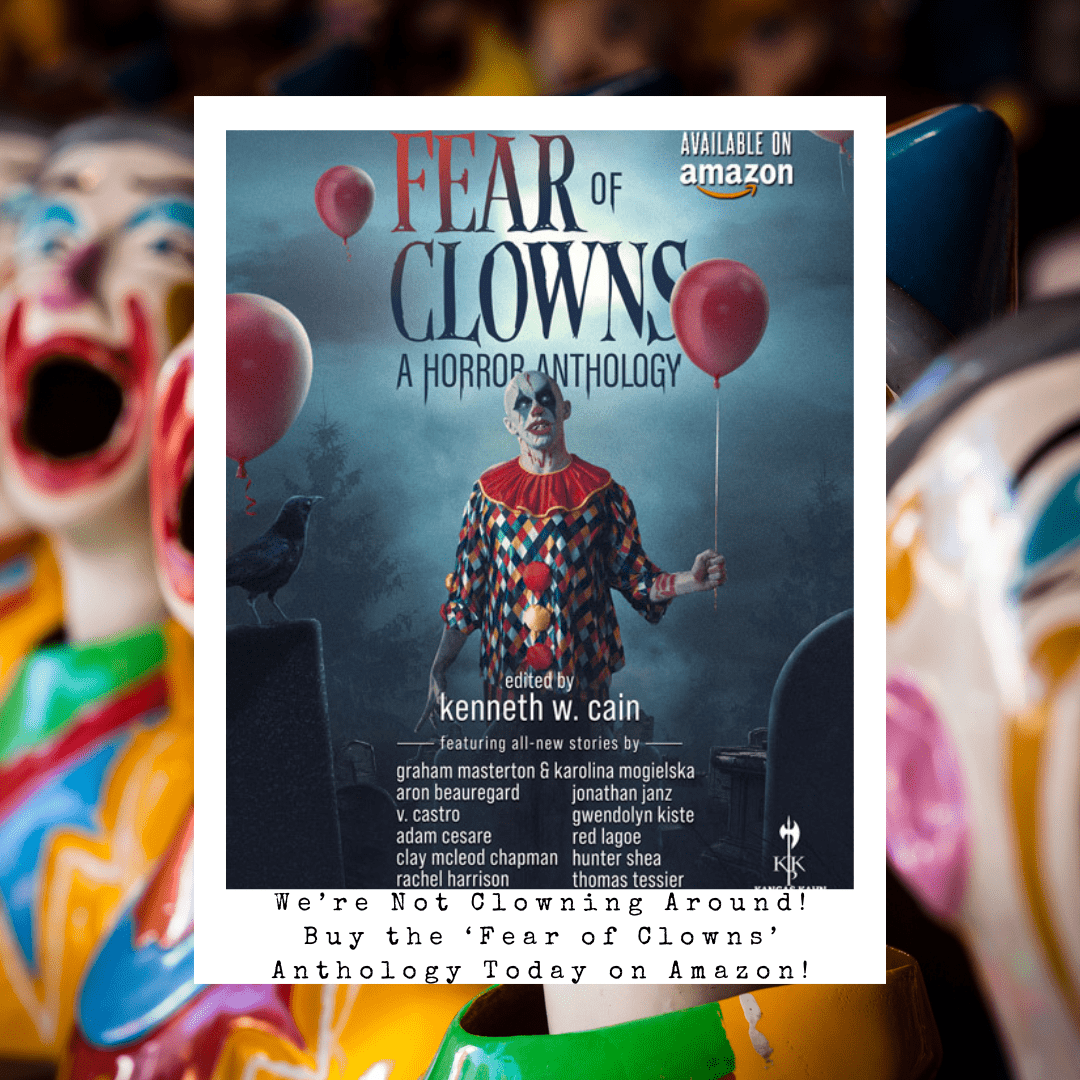Serial Saturday: A Touch of Fear by Zach Grant, Chapter Two
Chapter Two
As the emotional necromancer of the police department, everyone expects me to have power over fear—to reach deep into my soul and extinguish any sign of anxiety that comes with the job. My relationship with fear has taken years to establish, and by no means am I void of the pestering bug. Years of scouring neurobiological research to understand the workings of the human mind, coupled with my dives into the hearts of dead victims has granted me important perspective. Whatever fear I feel is no match to the terror of someone seconds from death.
When I flashback to the lab—the experiments—I remind myself that it’s nothing compared to the dead. My pain doesn’t come close to comparing to those I read. So, when we arrive at Conrad Henderson’s home, I shove my anxiety from my mind and focus on Lara.
It takes three knocks for Conrad to open the door. The bags under his bloodshot eyes and the slight tremble of his hand might seem like grief to some, but I know better. The signs of regret are all too familiar.
“Hello, Mr. Henderson,” says Rachel. “I’m Detective Hillcrest, and this is Detective River. We’re here to talk to you about your sister.”
Conrad doesn’t ask for ID. He just nods and allows us into his dank living room. The stench of beer and sadness fills the space. Mysterious stains laden his small couch, which is atop a faded rug and most certainly infested by pests. I avoid his offer to sit, leaning against his kitchen counter instead. Rachel follows suit.
“What do you wanna know?” he grunts.
“Is it correct that you reported Lara missing yesterday at around three?” asks Rachel, taking out her notepad.
“Yeah.” He rubs his nose and looks longingly at an open bottle on his coffee table.
“You can have a drink after we’re gone,” I say.
Conrad wrinkles his brow. “What else?”
“You reported her missing yesterday, yet claimed she’d be gone for two days prior. Can you explain that?”
Conrad shifts uneasily, his eyes on me. I hadn’t noticed my balled fists.
“I didn’t know until two days ago,” he says. “The university called and said she’d missed work two days in a row. Asked if I knew where she was. Assumed she was just home sick or something.”
“Did you try to contact her?” I ask.
“Obviously,” he drawls. “When she didn’t answer for twenty-four hours, I called you guys. I don’t see the problem. She doesn’t live here, so how the hell am I supposed to know what happened?”
“What did she do at the university?” asks Rachel. “Was she a student?”
Conrad shakes his head. “Lab assistant. Worked under a bunch of people. It made fine money but wasn’t as posh as she made it out to be.” There’s a hint of bitterness in his voice that boils my blood.
“How can you talk about her like that?” I demand. “She’s dead, and you’re going on about how she flaunted a successful career?”
Conrad glares at me, tears forming in his rugged eyes.
“How dare you,” he spits. “Do you know how she treated me? Like a waste of space. Ever since our parents died, she never once tried to comfort me. Instead, she just shoved it down my throat how pathetic I was—how great her job was and how I’d never amount to anything like her.” His voice cracks, and he collapses onto the couch. “I loved her so much,” he mutters. “Despite everything.”
My mind is blank as I stare at the weeping man. I don’t need my ability to sense his heartbreak, grief, and overwhelming regret. My own heart sags with the weight of his tears, and my anger begins to sizzle away.
“I’m sorry for your loss,” I say. “If it helps, I think she would have liked to apologize. I’m sure she loved you.”
Conrad looks up from his hands, cheeks dowsed.
“How do you know?” he asks.
I couldn’t help but reassure him, but now I have to lie. My affinity for the dead isn’t a matter of public knowledge.
“I have a sister,” I say. “Just a guess.”
But his eyes narrow at my vague explanation. As I watch his gears turn, I wish I could take back my sentiment.
“You’re Detective River,” he says. “Like Alan River? Did you feel my sister’s final moments?”
My heart stops. His words freeze me to the floor.
“How did you know that?” I ask.
“Lara talked about you sometimes. Said your case was fascinating—your ability to sense dead emotions or something.”
I grip the counter until my knuckles turn white. Waves of fear slam into me, clogging my lungs with thick saliva. Rachel grabs my arm.
“Alan? What is it?”
“We need to leave,” I mutter. “Thank you for your time, Mr. Henderson. We’re going to solve this case. For Lara.”
We leave Conrad bewildered in his rancid living room and storm back into the fresh air.
“Are you going to tell me what’s going on?” Rachel asks.
I pace up and down the sidewalk. My mind whirls like a Ferris wheel, with too many thoughts sliding out of reach. I take a deep breath and close my eyes. Lara Henderson experienced the worst fear of her life before it was taken from her. If she endured that, I could overcome this wave of anxiety.
“Lara knew who I was. Knew about my ability. That’s classified information.”
“Are you saying she had connections to the police department?” asks Rachel. “Wouldn’t we know about that?”
“The department aren’t the only ones who know.” I stop pacing and round on my partner. “Lara was a lab assistant working for the university. As a teenager, they used to run experiments—classified, of course—on my abilities.”
Rachel’s eyes widen. Her next words aren’t what I expect.
“You were experimented on?” she whispers.
In my shock, I forgot my secret from Rachel—one of many in my questionable past. I swore never to put that weight on her shoulders. At least my other secret is still safe.
“Yes,” I say. “Do you know what this means? It means that she worked for the people who studied me.”
From Rachel’s stiff shoulders and worn face, it’s obvious she wants to question me about my childhood. I shoot her a sharp look, and she concedes.
“What does that imply?” she asks. “How does that help us?”
“It means that Lara could have known other things, too. Perhaps things that a lab assistant isn’t supposed to know.”
“You’re saying someone had her killed?”
I run my fingers through my tangled hair. I witnessed the signing of the NDAs, and the analyses ran in the dead of night to avoid lingering eyes. They were some of the worst months of my life—all to study the grand magician with his unholy powers. I remember the disgust in their eyes—the fascination but also the disapproval that anyone like me could exist. But the most terrifying memories were their faces. Even though I couldn’t see into their souls, it was clear how far they would go to push the boundaries of discovery—how far they’d go to protect their secrets. The worst memory begins to surface, but I shove it out of sight with the force of my trained mind.
“There’s only one way to find out,” I say. “We have to go to the university. We must find out what they’re working on—what she could have seen.”
Rachel folds her arms and stares at the setting sun. Darkness begins to engulf us as the orange glow fades into the horizon.
“It’s late,” she says. “I have dinner with my family tonight.”
“Please, Rachel. Just call Wilson.”
I don’t notice the plea in my voice until Rachel grits her teeth. The fine lines of her forehead etch deeper into her skin as if my request ages her twenty years. A pang of guilt sinks into my stomach.
“I promise I’ll explain everything once this is done,” I say. “Please, Rachel.”
She approaches me in the darkness, her face shadowed by the evening. She squeezes my arm, and my heart leaps.
“Fine. But you owe me an explanation,” she says and steps away to call the commissioner.
I collapse onto the cold curb and bury my face in my hands. Conrad’s grief grinds through my body like tiny razor blades. I imagine his sister yelling at him—insisting that he’s a piece of garbage. I shiver in the warmth of the evening. I’m glad that Rachel can’t touch me and sense my emotions.
I picture my sister’s face—her dimpled smile with eyes brighter than Jupiter in the night sky. She runs around the street in front of me, sliding her chalk along the concrete like we used to do every day. A fresh wave of guilt arrives, but it’s dull and lived-in—nothing new. I will solve this case for Lara and Conrad, even if it means confronting the monsters of my childhood. They’re not allowed to hurt anyone else. Never again.
***
Commissioner Wilson won’t let us investigate the university without a warrant. Though it’s standard procedure, it still makes me slam my toe against the curb.
“Did you tell him what we learned?” I ask.
“Yes,” Rachel insists. “He said to hang tight.”
The moon has taken the night, casting a looming shadow across the quiet street. Conrad’s drapes are closed, but I swear I see them rustle every few minutes.
“I don’t know if time is on our side,” I say. “You don’t know these people like I do.”
“Alan, what did they…?” Rachel catches herself. “Look, I don’t know what to tell you. We can’t just break down the front door. You know the rules.”
Rachel’s calm demeanour scratches me with clawed nails. I want to shake her—to scream that this is the only way. Ever since Conrad spoke my name with such familiarity, my terror has been off the rocker.
“I’m going to go see my family,” she says. “You should come. Then, if Wilson calls, we can go straight to the university.”
I shake my head. “You go. I need some time.”
She nods and moves as if to hug me. She halts, seems to think better of it, and waves.
“I’ll call you as soon as I hear anything,” she says. “Don’t drive yourself crazy, Alan. Please.”
I watch her drive into the night, squinting at the beam of her headlights. She may be able to go home now, but I can’t. Warrant or not, I need to get into that university.








